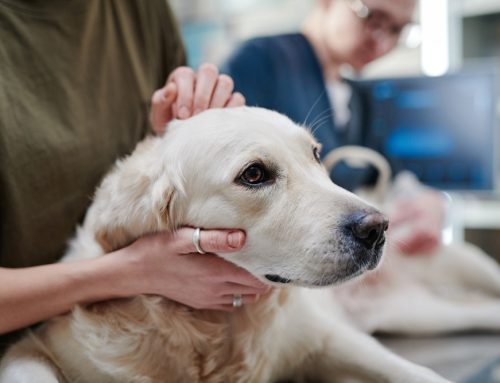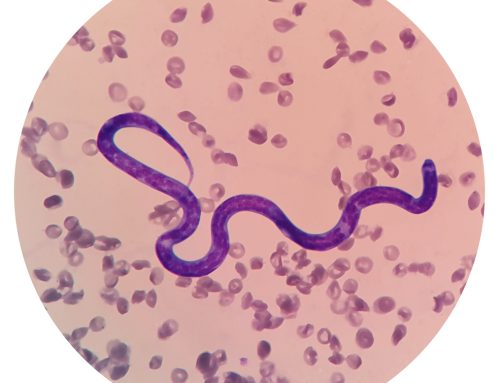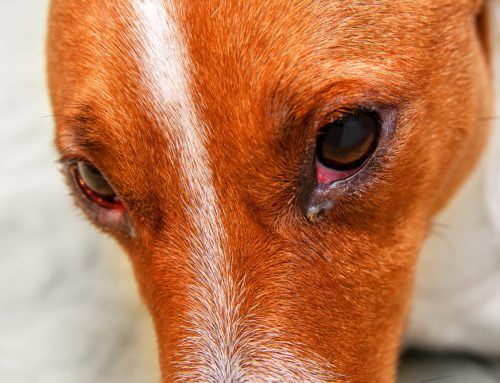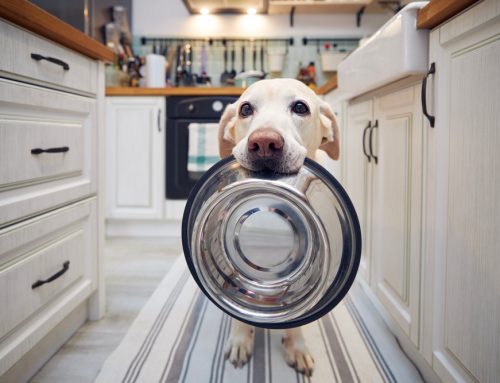Every weekend across this country, thousands of dogs are loaded into the family car to go hiking with their family. Have you ever sensed that your dog enjoys being at your side during these outings? They run, they smell, they greet passers-by, and best of all, they stop every once and a while and look back at you with a big doggie grin on their face. These family outings are priceless memories.
All outings require some preparation to keep everyone safe. The kids must carry water and snacks, and everyone should slather on sunscreen and bug spray. Do you also take safety precautions for your dog? In addition to their basic monthly flea and tick preventive, your pet needs pet-safe sunscreen for any lightly-furred areas of the body, and to avoid cuts and scrapes. The biggest concern for pooches who hike, however, is leptospirosis.
What is leptospirosis?
Leptospirosis is an infection caused by a bacteria, Leptospira interrogans, that is spread through the urine, reproductive fluid, or body tissue of wild animals, and lives in puddles, lakes, and wooded areas, and on hiking paths. Leptospirosis affects all mammal species, including humans, and is one of the most significant world-wide zoonotic (i.e, spread from animals to humans) infections.
How can my dog become infected?
While your family, including your pet, is hiking, your dog likely becomes thirsty. They probably do not have their own water bottle, and no doubt would refuse to drink from a bottle anyway, so they drink water they find on the ground, which may contain Leptospira bacteria. If your dog is not protected against leptospirosis, they may be in for a rough few weeks. Transmission mostly occurs when your pet drinks from, or puts a cut paw into infected water, but also when they come into direct contact with urine or reproductive fluids from an infected animal, eat an animal who is sick or dead from leptospirosis infection, or are bitten by an infected wild animal. Any outside water source, including a water bowl in your backyard that is accessible to wild animals, can serve as an infection source.
How does leptospirosis affect my pet?
For the first seven days after exposure to the bacteria, you will likely not see any disease signs. The wound through which the leptospirosis bacteria entered the body, which you may not ever notice, will probably heal. But, during this time (i.e., the incubation period), the bacteria cause inflammation in the bloodstream, which will eventually cause an inflammatory response, including fever, possible bruising, abnormal bleeding, and tissue swelling (i.e., edema), which will be visible. The bacteria may take over the kidneys, causing inflammation and pain, and the kidneys may fail to remove toxins from the bloodstream, or stop producing urine, which can be life-threatening. Sometimes a bacteria subset may venture off to colonize the liver, as well.
Unfortunately, your dog may survive the initial leptospirosis bacteria onslaught, but a chronic condition can set in that involves increased drinking and urination, liver inflammation, and sometimes uveitis, which is an inflammation of the eye’s deep tissues. The myriad responses make leptospirosis difficult to diagnose.
How can Leptospirosis affect my human family members?
Leptospirosis is not only a threat to your pet, but to your human family members, as well. If a member of your hiking party decides to rough it, and drinks from a stream, they can ingest Leptospira bacteria. The bacteria can also enter the body through a wound or mucous membranes, which means that swimming, or rinsing your hands in the water, can also be risky. If your pet develops Leptospirosis, you can become infected by contacting their urine or blood. In people, Leptospirosis varies, and can cause disease ranging from a subclinical infection to fatal kidney or liver failure.
How can I protect my dog against leptospirosis?

Fortunately, since your family loves hiking with your dog, you can protect them from leptospirosis with a non-core vaccine your Twin Maples Veterinary Hospital family veterinarian can provide. A non-core vaccine is one that is not included in a puppy’s regular vaccine schedule, because only dogs at risk of contracting the specific disease should be vaccinated. For leptospirosis, that includes not only dogs who hike or live near wooded areas, but also those who may go outside and drink from a puddle or an outside water dish.
Our Twin Maples Veterinary Hospital team is always here to be your partner in your pet’s good health. Our veterinarians are happy to help you decide whether a leptospirosis vaccine is right for your pet. If you’d like to schedule an appointment, or have concerns about your pet and leptospirosis, call or textour team. Happy hiking!









Leave A Comment